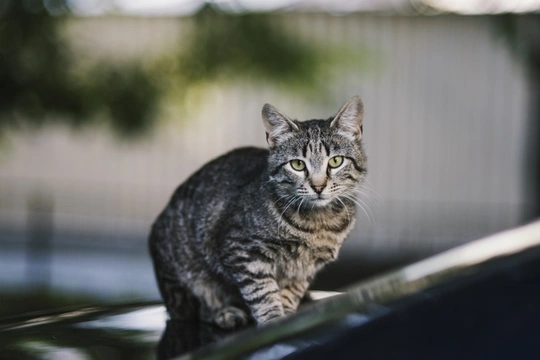
Cognitive Dysfunction Syndrome in Cats
As cats age, they are more at risk of suffering from disorders and diseases one of which is cognitive dysfunction syndrome. Unfortunately, this is one of the conditions that tends to go hand in hand with age and it directly impacts a cat’s brain function. In short, it often means that when cats suffer from cognitive dysfunction syndrome they have trouble remembering things and become forgetful and less responsive and aware of their surroundings.
Symptoms Associated with the Condition
As previously mentioned, the condition tends to affect cats as they reach their golden years and the signs to watch out typically include the following:
- Confusion
- Disorientation
- Restlessness
- Anxiety
- Irritability which can be quite extreme at times
- An unwillingness to interact or play
- Excessive licking/grooming
- Forgetfulness when it comes to being clean around the home
- Finding new things harder to learn
- Incontinence
- Lack of appetite
- A change in sleep cycles
The Causes
Unfortunately, why some cats suffer from cognitive dysfunction syndrome when they age remains a mystery although research suggests there may be a genetic link which could predispose some cats to developing the disorder more than others.
Diagnosing the Problem
A vet would ideally need to know a cat's full medical history and how the onset of any symptoms first manifested themselves. The more information a vet has, the better because it helps establish a diagnosis. The vet would thoroughly examine a cat suspected of having developed cognitive dysfunction syndrome and would recommend carrying out the following tests:
- A complete blood count
- A full biochemistry blood profile
- Ultrasounds - which would help rule out any other health issues
- X-rays - which would help rule out any other health issues
Treatment Options
Sadly, there are no treatment options for cats when they start suffering from cognitive dysfunction syndrome and it's more a question of giving them all the support and therapy they need to see them through. With this said, there are certain things an owner can do to help their cats and which could improve their condition, bearing in mind that a cat can't be cured"". Healthy stimulation is all important when cats start to develop the condition and it does help slow its progress down. Playing games with a cat is one of the ways to keep them stimulated and teaching them new things is another, all the while remaining very patient with them because they often find things much harder to learn when they suffer from the condition.
The vet might suggest feeding a specific diet which may help their condition and this typically includes adding supplements to their food like Vitamin E, antioxidants, Vitamin C, beta carotene, flavonoids, Omega-3 and carnitine all of which have been shown to help cats when they start suffering from cognitive dysfunction syndrome. However, it’s important to discuss things with a vet before adding any supplements to a cat’s diet because doses are all-important and if too much is added, it can do more harm than good.
Living with a Cat Suffering from the Condition
When cats suffer from the condition it's always a good idea for them to be seen by a vet on a regular basis. This allows the vet to reassess a cat's condition and to establish if things have progressed. With this said, should a cat show any signs of being in distress, it is essential for them to be taken to the vet sooner rather than later. It's also important to monitor a cat's quality of life when their symptoms become more severe because it is often kinder to put them to sleep rather than let them suffer.
""



